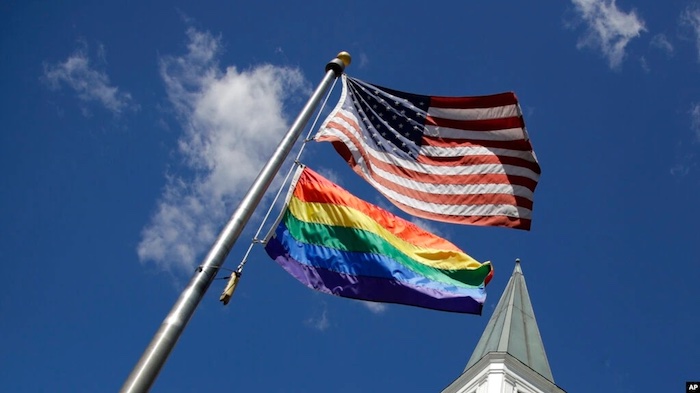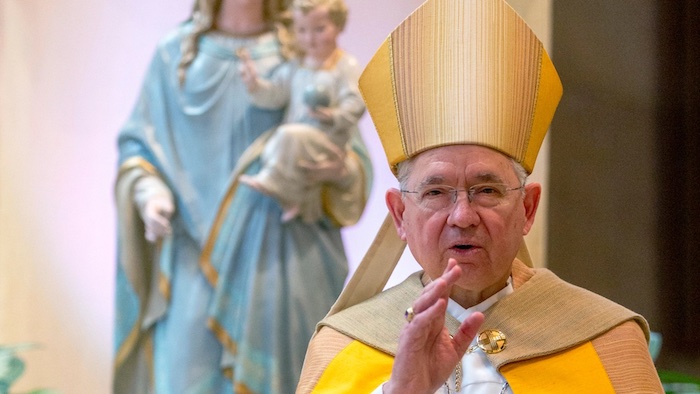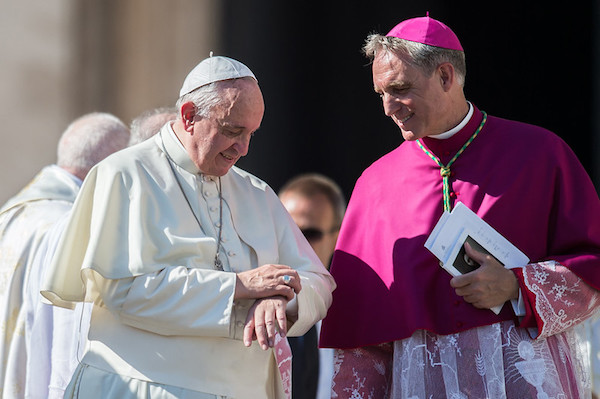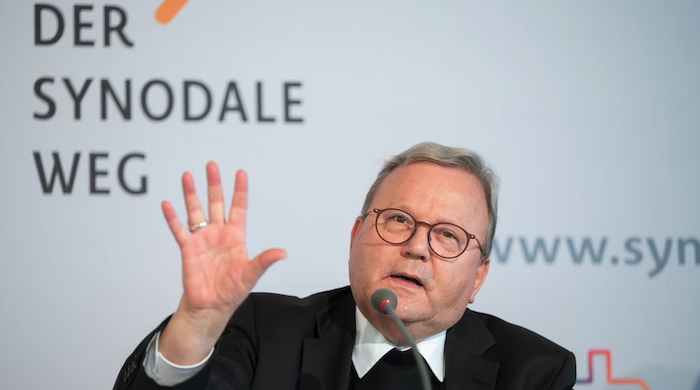
By Lana Leonard
Roman Catholic organizations celebrate the Respect for Marriage Act signing into law by recognizing the values of family and equality shared between Catholicism and the LGBTQ community.
Organizations like New Ways Ministry, DignityUSA, and religious leaders like Father James Martin speak to that strength through shared values, while advocating for the LGBTQ community and wanting more from equality. All these people and organizations have worked with GLAAD to advance LGBTQ acceptance within the Roman Catholic Church.
Francis DeBernardo, the executive director of New Ways Ministry, a 45-year old national Catholic ministry of justice and reconciliation for LGBT people and the church, reminds the people that even Pope Francis has said that LGBTQ couples deserve protections.
“Catholics want same-gender couples to receive the same societal protections and benefits that opposite-sex couples enjoy. Family stability and equality are strong Catholic values,” said DeBarnardo in a press release.
DeBernardo also says that two Catholic politician powershouses heralded RFMA into law.
“We are particularly proud that this bill was shepherded through the House of Representatives by a Catholic, Honorable Nancy Pelosi. That it was signed into law by a Catholic, President Joe Biden, is an even greater reason to be proud. They are leaders who have imbibed Catholic Social Teaching, and their beliefs in the human dignity and equality of all people are inscribed in this Act,” the New Ways Ministry executive director said.
Catholic support in today’s LGBTQ current events sheperds a new layer of hope among advocates in a time of religious extremism against LGBTQ communities and couples.
The US Conference for Catholic Bishops believes the Act works to slice away at religious freedom. “Obergefell created countless religious liberty conflicts, but the Act offers only limited protections,” said Chieko Noguchi of the USCCB Public Affairs Office in a statement. “Those protections fail to resolve the main problem with the Act: in any context in which conflicts between religious beliefs and same-sex civil marriage arise, the Act will be used as evidence that religious believers must surrender to the state’s interest in recognizing same-sex civil marriage.”
However, to DeBernardo this is the perfect time for the Catholic hierarchy, for bishops, for USCCB, to open up to the long-requested, and long overdue dialogue about equality for LGBTQ people.
“The Catholic bishops’ opposition is based on the idea that the bill does not provide enough religious exemptions, yet other religious leaders, legal analysts, and politicians who value faith are confident that the bill protects religious institutions,” said DeBernardo.
Some conservative Christian denominations like the Church of Jesus Christ of Latter-Day Saints and the Seventh Day Adventists have come to support laws like RFMA. They aren’t the only ones.
Over the last six years from 2015 to 2021 diverse support among various religions have increased their acceptance for LGBTQ legal protections, according to the Public Religion Research Institute.
Of all Americans 79% are in favor of LGBTQ protections. As for Catholics of color the support for LGBTQ protections has increased by 16% since 2015 (87%), Latine Catholic support has grown 8% with 83% in favor of LGBTQ protections, with white Catholics showing 7% growth at 80% in favor of LGBTQ protections, according to PRRI research.
The growing support shows as DignityUSA, the nation’s foremost organization of Catholics working for justice, equality, and full inclusion of LGBTQIA+ people in our church and society, believes the RFMA affirms that the majority of US Catholics of all political affiliations believe that same-sex marriage should be a legal right.
Yet, Marianne Duddy-Burke, executive director of DignityUSA, believes that this isn’t a complete victory.
“Moreover, it fails to address the ongoing inequities, legal and cultural, that continue to push LGBTQIA+ people and people of color out of the center of many communities.
“Indeed, DignityUSA is deeply concerned that the final version of the Respect for Marriage Act will in some ways actually work to perpetuate the inequity that interracial and same-sex couples have long experienced in our country,” said Duddy-Burke in a press release.
Unfortunately the RFMA comes to Pres. Biden’s desk under the fear that interracial marriages and LGBTQ marriages are threatened by the current Supreme Court majority. Many are preparing for Obergefell v. Hodges to be overturned, in turn, resulting in LGBTQ and interracial marriages a state-by-state issue. RFMA allows for couples to travel to states where it’s legal to marry with nationwide recognition regardless of the state law of a couples’ home states.
Ross Murray, Vice President of the GLAAD Media Institute, and a deacon in an Evangelical Lutheran Church, told the National Catholic Reporter that the fear of Obergefell overturning makes the Respect for Marriage Act’s passing as imperative as it is.
“Knowing that we have heard justices signal their intent to want to review and potentially roll back protections for LGBTQ Americans is what made this legislation so incredibly important,” said Murray.
However, Murray also notes that the implementation of religious freedom was important to the political process.
Sec. 6 No Impact on Religious Liberty or Conscience of RFMA protects religious groups who oppose LGBTQ marriage from having to provide “any services, facilities, or goods for the solemnization or celebration of a marriage.” Additionally, the law prevents churches and religious nonprofits that decline recognition of LGBTQ marriages from having their tax-exemption status revised or revoked.
This amendment is what DignityUSA deems as a partial victory, and uplifts what USCCB thinks of as a compromise to religious freedom. That is, wherever religious freedom has power, it will be used to take away the freedom of LGBTQ people, and not only in marriage, but in day-to-day life.
Father James Martin used this moment in history to uplift Catholic values in support of LGBTQ people.
“Never forget that both John the Baptist and Jesus sided with the poor, the marginalized and the disenfranchised,” Father Martin wrote on Twitter yesterday.
While the LGBTQ community continues to fight for equality, the community advocacy will carry on into a new chapter of policy: the Equality Act.
Complete Article ↪HERE↩!




